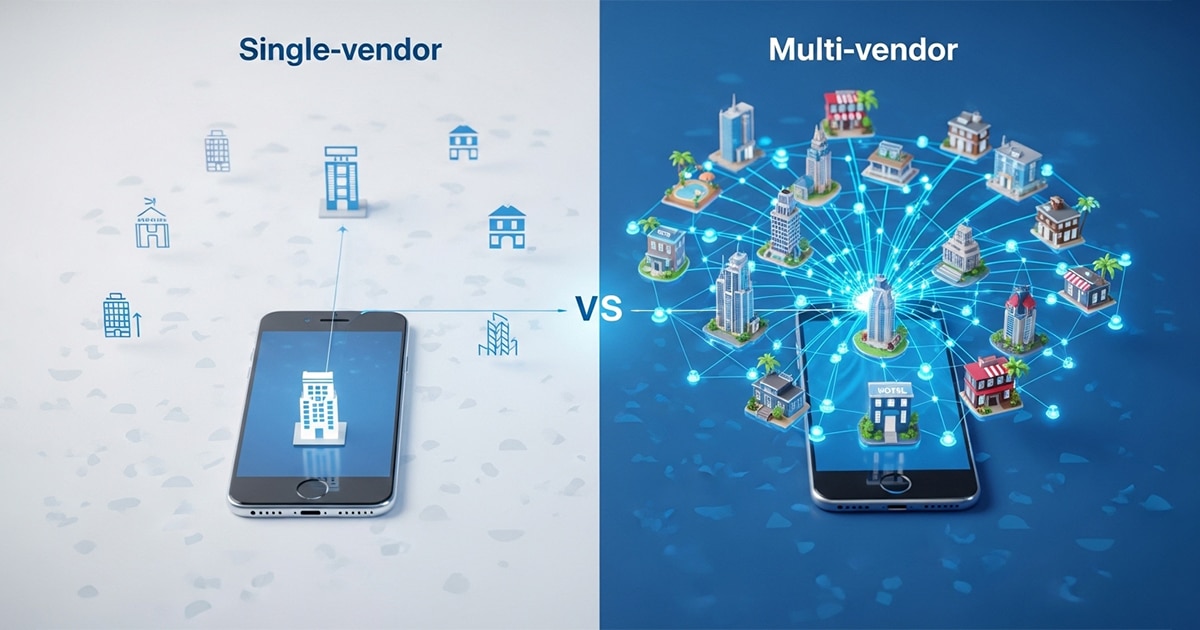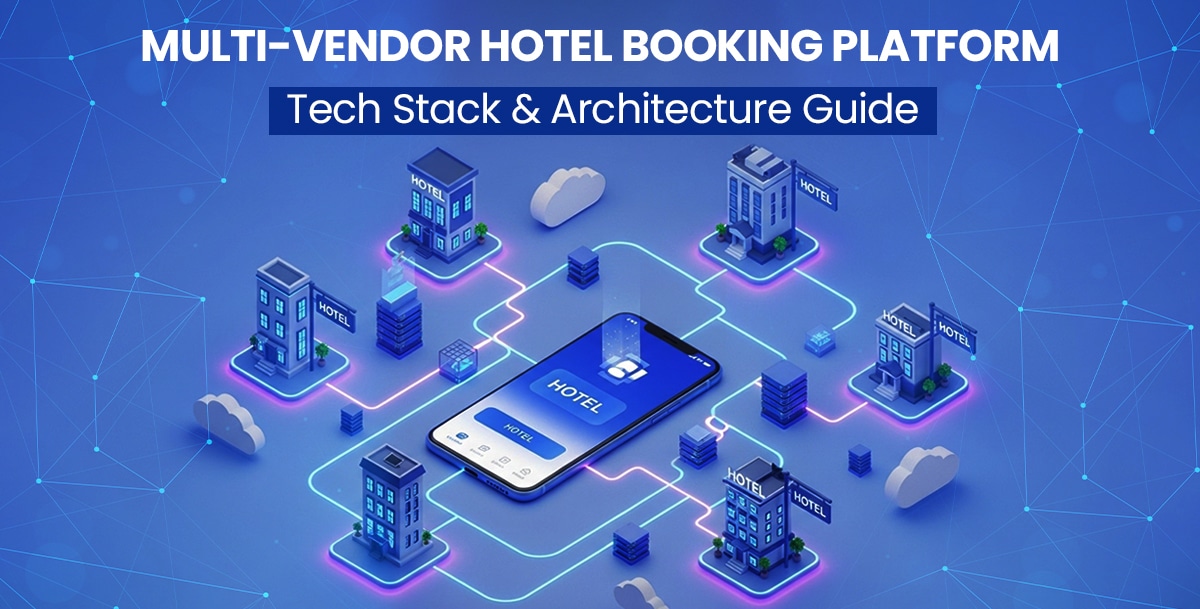Do you want your travel platform to stand shoulder-to-shoulder with big names like Booking.com or Expedia? One hotel inventory won’t cut it anymore. Travelers today expect choice, comparison, and convenience—all inside a single app. If your platform doesn’t deliver, they’ll head straight to a competitor. That’s why multi-vendor hotel booking systems are becoming the industry standard.
Rather than being one supplier, you can combine multiple hotel suppliers and APIs, providing users with more rooms, reduced rates, and live availability in the same spot. It may seem complex, yet by the choice of tech stack and architecture, the creation of a scalable and future-proof platform is not merely possible.
Why Build a Multi-Vendor Hotel Booking Platform?

Just consider the way travelers use booking applications. In essence, the passengers desire alternatives, they desire price quotes, and they want immediate validation. When your application is linked to a single supplier, the users might end up with fewer options, stale prices, or even unavailable entries. That’s a fast way to lose trust.
A multi-vendor setup solves this by:
- Increasing coverage: Access thousands of hotels worldwide through multiple APIs.
- Boosting competitiveness: Offer flexible pricing and unique deals from different suppliers.
- Building trust: Real-time updates reduce issues like double bookings.
- Easy to scale: New vendors are added without interruption to your business as the scale increases.
- Frontend (User Interface): React, Angular, or Vue. JS a framework that allows building of smooth mobile-first booking experiences. Easy filters, calendars, and a clear layout are things that travelers should expect, and thus usability should always be prioritized.
- Backend (Server-Side): The backend drives requests and bookings and integrates vendors. The best options are Node.js, Django, or Laravel, which are backed by the REST or GraphQL API to perform high-speed and reliable communication.
- Database: MySQL or PostgreSQL is superb for booking records. MongoDB can be a performance addition to flexible data, i.e., reviews or personalization.
- APIs & Vendor Integration: The backbone of your platform. APIs from RateHawk, Amadeus, or Expedia bring in live hotel listings, availability, and pricing.
- Payments & Hosting: Stripe, PayPal, or Razorpay services are considered to be safe in transactions. The hosting in AWS, Google Cloud, and Azure ensures scalability, and the compliance with GDPR and encryption ensures the safety of the users.
-
- API Aggregation Layer: Interacts with a system that links together several vendor API.
-
- Business Logic Layer: Processes price regulations, cancellations, and availability.
-
- Database Layer: It contains the users, hotel descriptions, and reservation history.
-
- Frontend Layer: Will offer a search, comparison, and booking interface.
-
- Admin Panel: Allows you to control the vendors and commissions and monitor the overall performance.
-
- Advanced search and filters (destination, ratings, amenities).
-
- Real-time availability with no outdated results.
-
- Comparison tools to view multiple vendor rates side by side.
- In-app booking management for cancellations or re-bookings.
- Multi-language and multi-currency support for global users.
- Vendor and commission management for agencies handling multiple suppliers.
- API complexity: Vendors use different data formats.
- Performance problems: There are several integrations, which may slow down the response time.
- Scalability: Serving thousands of simultaneous users without problems.
- Accuracy of the data: No incongruent prices or out-of-date listings.
- Flight bookings and transfers
- Car rentals
- Local tours and activities
It is not merely a matter of convenience but also of creating an ecosystem that ensures that travelers remain entertained and return.
The Tech Stack That Makes It Work
It is the strength of the technology that makes a booking app robust. It does not need to be of infinite complexity in any sense, but it will need to be a stack that can provide a trade-off between speed, scalability, and security.
Being with the right partner, you will be able to move even faster, scale without fear, and provide travelers with the convenient booking experience they are used to.
The Architecture Behind a Multi-Vendor Platform
Technology alone won’t win the game—you need a smart architecture that can grow with your business. A common layered approach includes:

This modular setup keeps your platform agile while ensuring stability as you expand.
Features Every Multi-Vendor Hotel Platform Needs
A competitive booking app isn’t just about integrations; it’s about features that keep users loyal:
Challenges You’ll Face (and How to Solve Them)
Of course, building such a system isn’t without hurdles:
The key lies in careful integration design, optimization, and picking the right development partner to address these challenges early.
Beyond Hotels: Growing Into a Travel Ecosystem
When you have your groundwork laid, it will be easy to venture into other services. You can add:
This brings your app more of a booking feature and much more of a travel ecosystem, one that travelers refer to whenever they have a need.
Reach us Today
Final Thoughts
Travelers today don’t want to juggle five different apps. They want one reliable platform that handles it all. By building a multi-vendor hotel booking system, powered by smart APIs and the right architecture, you can give them exactly that.
The choices you make in tech stack and design will decide whether your app becomes just another travel tool—or the go-to platform that travelers trust.
